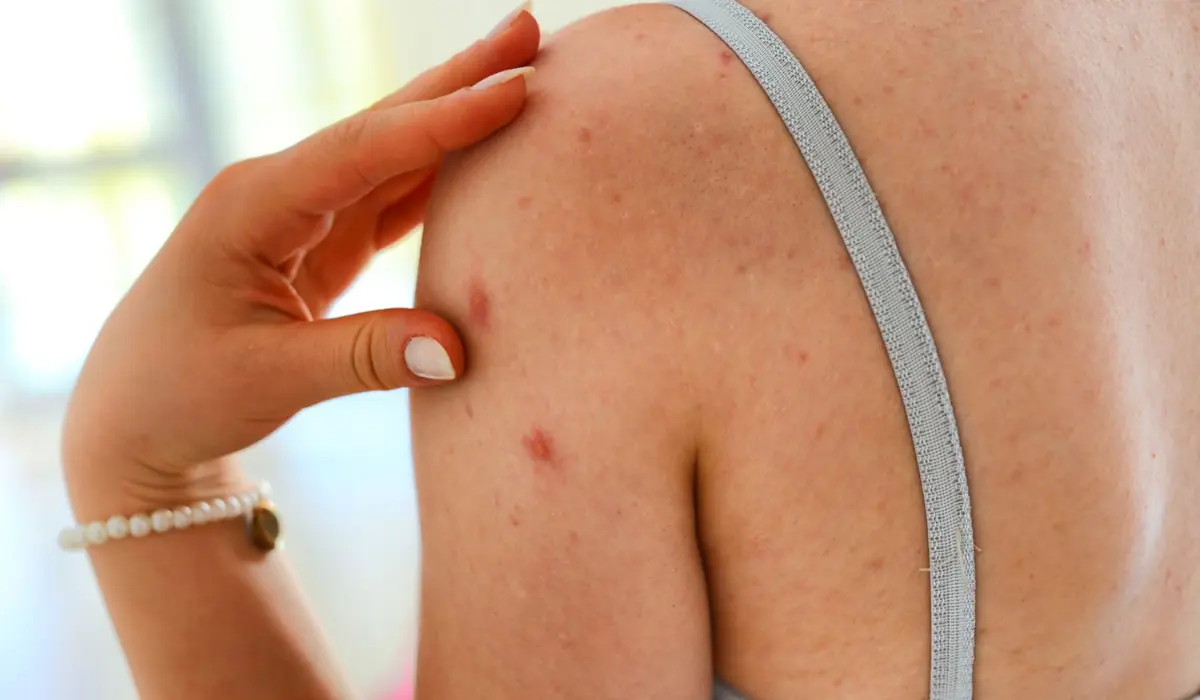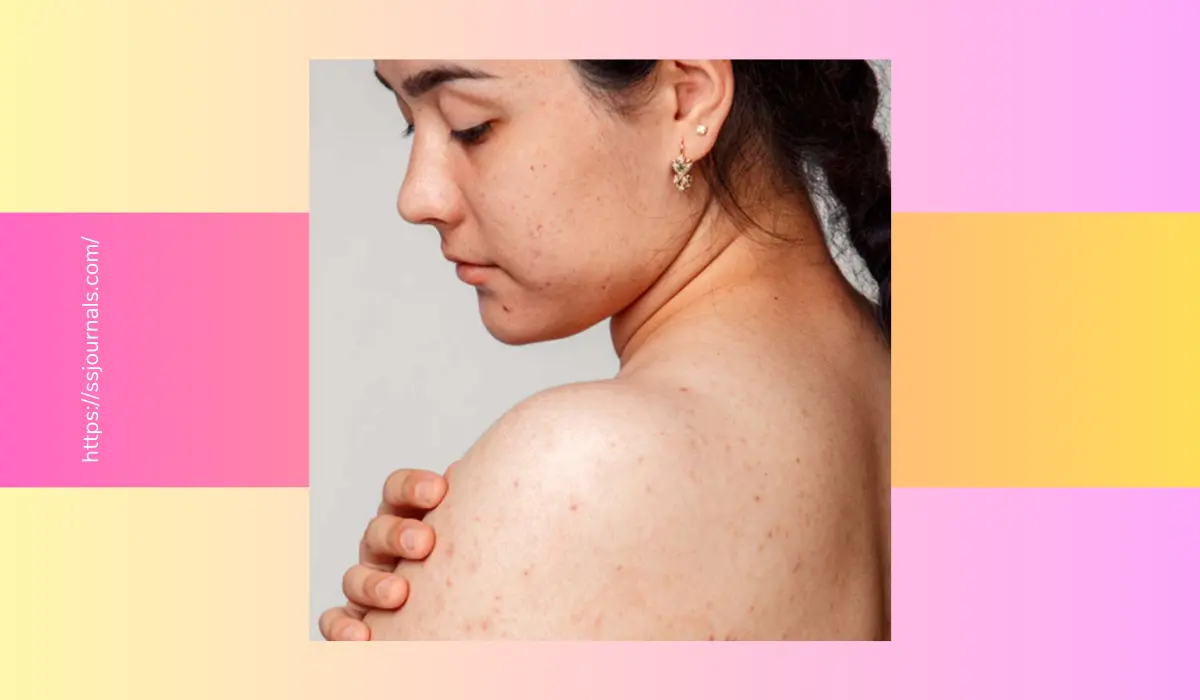Dealing with acne on your face is troublesome enough, but body acne can be equally frustrating to treat. Body acne consists of acne lesions that appear on the neck, back, chest, shoulders, and buttocks – areas with high concentrations of oil glands. Just like facial acne, body acne forms when dead skin cells, oil, and bacteria clog your pores and cause pimples, whiteheads, or cysts to appear.
What Is Body Acne?

Acne is a common skin condition that can occur anywhere on the body, including the face, back, chest, arms, and legs. Body acne, also known as truncal acne, can be just as frustrating and embarrassing as facial acne. The causes are similar – blocked pores, excess oil production, bacteria, inflammation, and hormones.
Acne lesions like whiteheads, blackheads, papules, pustules, nodules, and cysts can develop on the skin. Thankfully, there are many effective treatments to clear up body breakouts and prevent new ones from forming. With a strategic skincare routine using over-the-counter products or prescription medications, you can achieve clear, smooth skin all over.
Types Of Acne
Acne is most common during puberty due to hormonal changes but can affect people of all ages. There are several types of acne that vary in their causes, symptoms, severity, and treatment. There are several types of acne that can develop on the body:
- Non-inflammatory acne – This includes whiteheads and blackheads, which develop when dead skin and oils clog the pores.
- Inflammatory acne – Papules, pustules, and nodules that are red and inflamed fall under this category.
- Cystic acne – Large, painful lesions deep under the skin characterized by pus, swelling, and scarring. More common on the face but can occur on the body.
- Hormonal acne – Breakouts occurring due to fluctuating hormones, often in a cyclic pattern. Common on jawline, chest, and back.
- Steroid acne – Caused by the use of topical or oral corticosteroids, presents as widespread red papules and pustules on the body.
Causes Of Body Acne
There are several contributing factors that can lead to acne on the torso, back and limbs:
Excess sebum production – Overactive oil glands or hormonal changes increase sebum that blocks pores.
Follicular hyperkeratinization – Buildup of dead skin cells within hair follicles.
Bacteria – Propionibacterium acnes bacteria colonize clogged follicles and trigger inflammation.
Inflammation – Immune response to bacteria and irritation leads to swelling, redness, and potential scarring.
Friction and sweat – Heat, moisture, and friction from tight clothing or backpacks can exacerbate acne.
Genetics – Family history of body acne increases risk.
Hormones – Androgens like testosterone increase during puberty and boost oil production and breakouts.
Stress – Stress hormones alter immune function and oil gland activity, and worsen acne.
How To Get Rid Of Body Acne?
To clear up body acne, focus on a regular skincare regimen that keeps skin clean, reduces oil, treats existing breakouts, and prevents new ones. Helpful tips include:
- Regular cleansing – Use a gentle body wash with benzoyl peroxide or salicylic acid when showering. Avoid harsh scrubbing.
- Exfoliate – Use exfoliating cleansers or brushes 2-3 times a week to slough off dead skin cells.
- Acne treatment products – Apply over-the-counter gels, creams, or lotions containing benzoyl peroxide, salicylic acid, or alpha hydroxy acids. Reduce oil and kill acne bacteria.
- Retinoids – Prescription retinoids like tretinoin help unplug pores, allowing other topicals to penetrate better. Use as directed.
- Oral antibiotics – For moderate to severe inflammatory acne, oral antibiotics reduce bacteria and acne lesions.
- Hormonal therapy – Medications like oral contraceptives or spironolactone block androgen hormones to improve acne in women.
- Isotretinoin – Severe, treatment-resistant cystic acne may require oral isotretinoin (Accutane), which reduces oil gland size and function.
- Proper hydration – Drink plenty of water to flush out toxins that can contribute to acne.
- Healthy diet – Eat a balanced diet low in refined carbs. Avoid foods that spike blood sugar.
- Stress management – Practice relaxation techniques to lower stress hormones.
- Probiotics – Supplements support healthy gut bacteria and may reduce inflammation.
With professional guidance, most people can successfully treat body acne and maintain clear skin long-term. Severe acne may require prescription medications like isotretinoin. Consistency is key for optimal results.
Conclusion
Body acne can be just as much of a nuisance as facial acne but does not have to take over your life. Understanding the common causes like hormones, bacteria, and excess oil production allows you to tailor your treatment regimen accordingly.
Dermatologist-recommended over-the-counter acne products, oral antibiotics, and hormonal therapies can effectively clear up inflammatory lesions.
Complementary lifestyle measures like probiotics, stress reduction, and exfoliation also support skin health. With a multipronged approach, most people can achieve clear skin from head to toe. Consistency and patience are key when tackling body acne.
FAQ
Using a benzoyl peroxide body wash daily, applying acne creams with salicylic acid, using an exfoliating brush or loofah 2-3 times a week, wearing loose breathable fabrics, and taking oral antibiotics (if prescribed) can help clear up back acne.
Birth control pills containing ethinyl estradiol and anti-androgens like drospirenone, norgestimate, or norethindrone can improve hormonal acne in women. Discuss options with your gynecologist.
Yes, picking and popping body acne can push debris and bacteria deeper into pores, causing more inflammation and potential scarring. Leave extraction to professionals. Gently wash the area and apply a spot treatment instead.
No, sun exposure can exacerbate acne by causing more oil production. Practice sun safety, use oil-free non-comedogenic sunscreen for body acne-prone skin, and avoid excessive UV light which ages skin.
Most topical acne medications require consistent use for 4-6 weeks before significant improvements are noticeable. Prescription oral treatments can take 2-3 months to reveal their full effects. Patience is key. Follow product directions.

